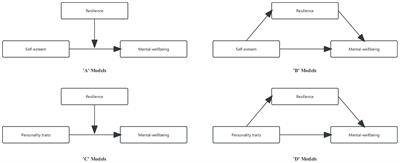Introduction:
Cardiovascular diseases (CVDs) have become a global health concern, causing significant morbidity and mortality worldwide. Understanding the risk factors, prevention strategies, intervention techniques, and management approaches are vital for addressing this pervasive health issue. This study aims to provide a detailed examination of recent advancements in cardiovascular health.
1. Risk Factors:
Identifying the risk factors associated with CVDs is critical for prevention and intervention efforts. Several factors play a significant role in the development of cardiovascular diseases, including obesity, smoking, poor diet, sedentary lifestyle, hypertension, diabetes, and genetic predisposition. The study reveals the importance of addressing modifiable risk factors, such as promoting healthy lifestyles, initiating smoking cessation programs, and implementing effective weight management strategies.

2. Prevention Strategies:
Prevention is key to reducing the incidence of CVDs. The report highlights the benefits of implementing primary prevention strategies, including population-wide interventions, public awareness campaigns, and screenings. Studies have shown that educating individuals about the importance of adopting a healthy lifestyle can significantly reduce the risk of developing cardiovascular diseases. Additionally, targeted approaches for high-risk groups, such as individuals with a family history of CVDs or those with risk factors, prove effective in preventing the onset of the disease.
3. Intervention Techniques:
Early detection and prompt intervention are crucial in managing CVDs and minimizing their adverse effects. The report delves into various intervention techniques, focusing on both pharmaceutical and non-pharmaceutical approaches. It discusses the efficacy of medications, such as statins, antihypertensive drugs, and antiplatelet agents, in controlling risk factors and reducing the incidence of adverse cardiac events. Furthermore, the study explores the role of lifestyle interventions, including physical activity, dietary modifications, and stress management, as adjunctive measures to pharmacotherapy.
If you loved this article and you also would like to acquire more info regarding Nutritionist nicely visit our own web site. 4. Management Approaches:
Managing established cardiovascular diseases requires a multi-faceted approach, involving medication, lifestyle modifications, and timely interventions. The study provides an in-depth analysis of different management approaches, including invasive procedures like angioplasty and coronary artery bypass grafting, as well as non-invasive techniques like cardiac rehabilitation programs and long-term medication management. Furthermore, it emphasizes the importance of a multidisciplinary approach, involving collaboration between healthcare providers, nutritionists, physiotherapists, and psychologists, to achieve comprehensive cardiac care.
5. Technological Advancements:
Recent advancements in technology have significantly contributed to the field of cardiovascular health. The report examines the impacts of technological innovations, such as wearable devices, telemedicine, and electronic health records, on improving the prevention, diagnosis, and management of CVDs. These advancements enable remote monitoring, early detection of cardiac events, and personalized treatment plans, thus enhancing patient outcomes and reducing healthcare costs.
Conclusion:
Cardiovascular health remains a significant public health concern worldwide. This study provides a comprehensive overview of recent advancements in understanding, preventing, intervening, and managing cardiovascular diseases. By addressing modifiable risk factors, implementing prevention strategies, adopting effective intervention techniques, and incorporating technological advancements, significant progress can be made in reducing the burden of CVDs. A holistic approach involving individuals, healthcare professionals, policymakers, and the community is essential to combat this global health issue effectively.